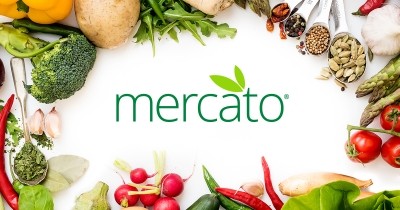Equity crowdfunding offers a way to raise funds without compromising values

Rather, Reno Rolle explained to FoodNavigator-USA, the emergence of equity crowdfunding platforms, such as StartEngine, offers companies, like his, with “intense commitment to quality” a chance to raise funds in exchange for company equity from “friends, family, customers and other people who love us, believe in us” and who won’t ask the company to change its business model or sacrifice its mission to make more money.
The platform also offers non-accredited investors the chance to “get in on the ground floor of something potentially very, very exciting, which didn’t really exist before as most of these ground floor opportunities were reserved for larger, accredited investors or institutions,” he added.
Attracted to both of these aspects, Rolle explained that Boku launched a StartEngine campaign last fall originally to raise $10,000 to $107,000 dollars, but once that goal was achieved in less than 40 days, the brand decided to raise the goal to $1.07 million.
“We will see how far it takes us, but we are earning investors and some traction, and at the very least StartEngine has been an amazing bridge mechanism for us because we are going out to align with a strategic CPG partner and or major investor, but this is a great way to get from here to there,” Rolle said.
Why opt for equity crowdfunding?
He explained that Boku launched the campaign after ruling out traditional banks and big investors who had previously approached the brand but “weren’t a good fit.”
As “a family business, a lot of conventional investors don’t really align with our brand DNA,” which is “to maintain this very high level of commitment to the quality of the products and the quality of the customer experience, and never compromise,” Rolle said.
He explained that this dedication, and the company’s unwaivering mission “to positively impact people with the healing power of whole food superfood nutrition,” comes from his family’s personal experience with superfoods.
Rolle and his wife first discovered superfoods 23 years ago when a naturopathic physician recommended they give their son a superfood blend to help him manage his high energy level and associated behavioral struggles.
“At the time, we had to have a blend delivered to our home, because it wasn’t easy to find superfoods, and of course it tasted like fish food,” but “we began to see immediate improvement not only in our son Reno Jr.’s behavior and grades in school, but we started feeling amazing – unlike we had ever felt,” Rolle explained.
“This ignited a passion in us to research and learn more about superfoods,” and eventually make them available to more people with the launch of Boku in 2007, he said.
For the first eight years, Rolle and his wife bootstrapped the company because they did not want to sacrifice the quality of their products, which were sold primarily online. In 2015, Rolle said, the company did take on its first private equity in a “very small round,” but for the most part found that investors didn’t understand the company’s dedication or desire to protect their brand.
“Building a brand in some ways is like building a successful marriage. It takes fierce unrelenting commitment, it takes sacrifice, it takes pain and perhaps most of all you really have to think long term and you better be in it for the long haul and love delayed gratification,” he said.
“This is why, for us, StartEngine fits really well because we don’t have to explain away our passion. We are able to share our company with friends, family and customers who … understand what it is that we do and know that we won’t sell out,” he said.
A direct connection to consumers
The platform also doubles as a way to reach potential consumers and raise brand awareness – something that even conscious capital investors can’t do to the same level as an Internet campaign.
Rolle explained that his campaign on StartEngine began with the company sharing its message and presentation “to our core base of consumers, friends and family,” but he says he hopes the campaign will “achieve social traction, so ideally people that resonate with our message will not only choose to invest, but also share it with more friends and family – people who they care about and who might want to share the opportunity” or become customers.
He added that he loves the “direct connection to our customers” and the ability to reach both investors “and also believers.”
As of Jan. 30, Boku had convinced 164 investors to invest $146,073 in the campaign, which ends in mid-February. Likely, the number is higher of potential customers or people who had not previously heard of Boku but who discovered it via StartEngine.
Rolle said he also was attracted to the ease of use that StartEngine offered.
“The people at StartEngine were very easy to work with and they offered a suite of services that made it easy. You can go on the platform on your own and do all the heavy lifting, they can do all the work for you” through their “plug and play” model, he explained.
However, Rolle was quick to caution that “there is still plenty of work to do” even with the platform’s help.
An investment in the future
The funds raised through the StartEngine campaign will help the brand expand into new categories and platforms, Rolle said.
“We have incredibly exciting ideas for future innovation, for example, we want to move into the pet category. It is an area of tremendous passion for both my wife and I,” he said.
Likewise, the company is looking at the increasingly popular CBD space and creating “amazing functional edibles, elixirs and things of that nature,” as well as a superfood infused beer made by their son who has a plant-base nutritionist certification from Cornell University, Rolle said.
As the brand expands, the company will continue to maintain its high quality standards, he said, explaining: “We have remained steadfast in our commitment, and I believe we have been very successful in creating a solid brand with a solid track record and reputation, and this will provide a very solid foundation for us from which to grow and build.”



















